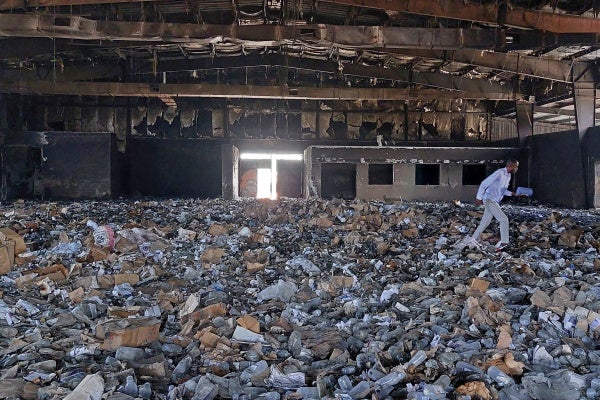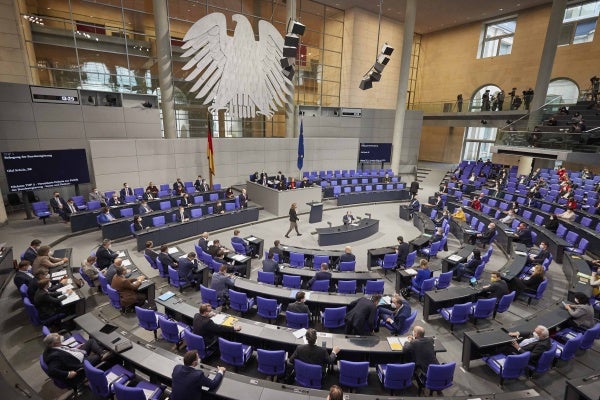Lire la version en français / Hier die deutsche Ausgabe lesen
No war can be reduced to few hundred words.
But today, on the one-year anniversary of Sudan’s ongoing conflict, let’s try to de-complexify the situation by highlighting the four key actors involved in the horrific tragedy that’s been unfolding.
The first two are the main warring parties, which, over the past year, have committed one atrocity after another: the Sudanese Armed Forces (SAF) and the Rapid Support Forces (RSF).
The SAF have unlawfully killed civilians. They’ve carried out airstrikes deliberately targeting civilian infrastructure, including hospitals. The SAF has recruited children as fighters and repeatedly obstructed humanitarian aid from reaching those who need it.
On the other side, the RSF and their allied militias have carried out widespread killings of civilians, many ethnically targeted, as in West Darfur. The RSF has engaged in widespread sexual violence and pillage, as well. They’ve also recruited children, and they’ve also hampered humanitarian aid, including by massive looting.
The third of our four groups of people involved in Sudan’s conflict are the victims of the first two, the millions caught up in the horrific violence of the SAF and the RSF.
In addition to the thousands abused and killed, the conflict has forced 8.5 million people from their homes. About a fifth of them have fled to neighboring countries. Millions who remain make Sudan the world’s largest crisis of internal displacement.
Some 25 million people – that’s about half of the population of Sudan – are now dependent on emergency food supplies. Five million could be at risk of starvation in the coming months.
This brings us to the fourth and final actor in Sudan’s tragedy: the international community.
As we’ve discussed here several times over the past year, the outside world has not been addressing the Sudan crisis with anything like the urgency it demands. Alarm bells have been ringing, but there’s been a spectacular silence in response.
Today could see a shift in the world’s approach. Global and regional leaders are meeting in Paris to put the spotlight on Sudan. They’ll push for an end to the fighting and, hopefully, for a much-needed, massive boost in global funding for humanitarian action.
The Paris conference should also make clear that those responsible for atrocities in Sudan will be held to account. In particular, they should announce concrete measures against those deliberately obstructing aid. Getting the aid to folks who need it has to include discouraging the warring parties from blocking it and stealing it.
One year ago today, Sudan began spiraling out of control. Of the four actors involved, we know what’s been happening with the first three. We need to see a lot more of the fourth.









